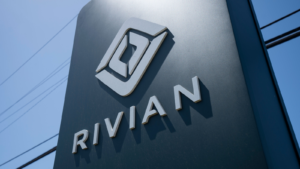
Over the past several years, EVs have taken front-stage in the news. While large-scale adoption of electrification has yet to materialize, the rapid improvement of technology and manufacturing, especially in low-cost areas like China, has been a leading driver behind the growing pace of EV acceptance.
Already, compared to internal combustion engine (ICE) cars, upfront costs for EVs have slowly narrowed to the point that many drivers are considering switching to electric cars to benefit the environment and their pockets in the long run. Despite many worries over waning EV demand, EV sales in the U.S. are still forecasted to rise by 20% in 2024. Additionally, by 2030, the IEA expects nearly 20% of all roads in the U.S. and Europe to be electric!
Of course, while many automotive companies around the world have slowly begun offering at least one EV in their lineup, not all EV companies are created equal. As such, this article will spotlight our chosen three EV extraordinaires to invest in if you are looking to take a stake in the future of transportation.
Ford Motor (F)

Ford Motor (NYSE:F) is one of the oldest companies in the automotive industry and is famous for producing the world’s first mass-produced car, the Model T in 1908. While the stock is just trading at about $12, Wall Street analysts have projected a one-year price high for this stock of up to $21!
Currently, one of the biggest gaps in the global EV market is the lack of affordable options. Compared to the average cost of an ICE car at $35,722, EV prices remain nearly 50% more expensive at $53,048. While many proponents of EVs still argue for the long-term cost savings of EV, for many average consumers, these upfront costs are simply too much. Thankfully, over the past two years, Ford has been leveraging their sheer scale of manufacturing to serve the masses. While this “modern-day EV model T” still isn’t fully developed, investors can bet on this potential development now as a key growth catalyst into the next several years.
Ford has always been a strong investment over the past years. With a strong dividend rate of 4.97% and solid 12% compound annual growth rates (CAGR) for shareholder returns over the last five years, Ford is seen by many as a stable leader in the automotive space. Now, with Ford’s valuation dipping to over 50% under its sector median, investors should highly consider this company as a discounted opportunity in a key leader in the changing automotive market.
Tesla (TSLA)

The undisputed king of EVs, Tesla (NASDAQ:TSLA) has long dominated the EV market with its first-mover advantage. So much so that it has often become the industry comparable when it comes to features, innovation and prices. Currently, the stock trades at about $177 per share, but Yahoo Finance analysts project a potential one-year upside of up to 70%.
Tesla has built quite a strong lineup of cars, with its cheapest being the Model 3, ranging between an average of about $40,000 to $55,000. A key differentiator for this company in the U.S. market has been its ability to consistently create some of the cheapest and bestselling vehicles. However, as Chinese EV companies begin to threaten Tesla in price, Tesla is making plans to release even more cost-optimized EVs to increase their addressable market and capture a broader range of customers.
While investors have often avoided Tesla stock for its inflated price, Tesla’s valuation is now sitting over 50% below its five-year historic price-to-earnings (P/E) average. Despite this strong pullback in its stock price, the company has stabilized its margins to a much more comfortable 17% and has made labor cut moves to further boost profitability. For those who missed Tesla during its first ramp-up, now is the time to scoop up a few shares into this world-class EV extraordinaire before its rebound.
Rivian Automotive (RIVN)

While Tesla dominates the EV market in terms of sales figures and publicity, Rivian Automotive (NASDAQ:RIVN) stands as an underdog with high value amidst the industry slowdown. While this company is trading just above $11, Yahoo Finance analysts optimistically hold a one-year price target between an average of $16 to $36!
From the start, the company has focused on ergonomics, quality, sustainability and more importantly, a vehicle platform dubbed “skateboard” architecture. This innovative platform has been a strong competitive moat allowing Rivian to cut costs and attain economies of scale by reducing the need to engineer a new base for each car. Additionally, Rivian has also released a new addition to their EV lineup, the R1S SUV. While these more pricey vehicles aren’t for all consumers, their focus on performance and advanced technology and design has built a strong loyal customer base.
In Q1 2024, Rivian reported an excellent 82% YOY revenue growth. While this company is still in a highly cash-burning phase, the company’s balance sheet and liquidity runway should give investors faith in this hyper-growth company. With a price/book ratio of 1.45x compared to the sector median of 2.16x, you would be foolish not to put this future-looking EV contender on your watchlist!
On the date of publication, Ian Hartana and Vayun Chugh did not hold (either directly or indirectly) any positions in the securities mentioned in this article. The opinions expressed in this article are those of the writer, subject to the InvestorPlace.com Publishing Guidelines




